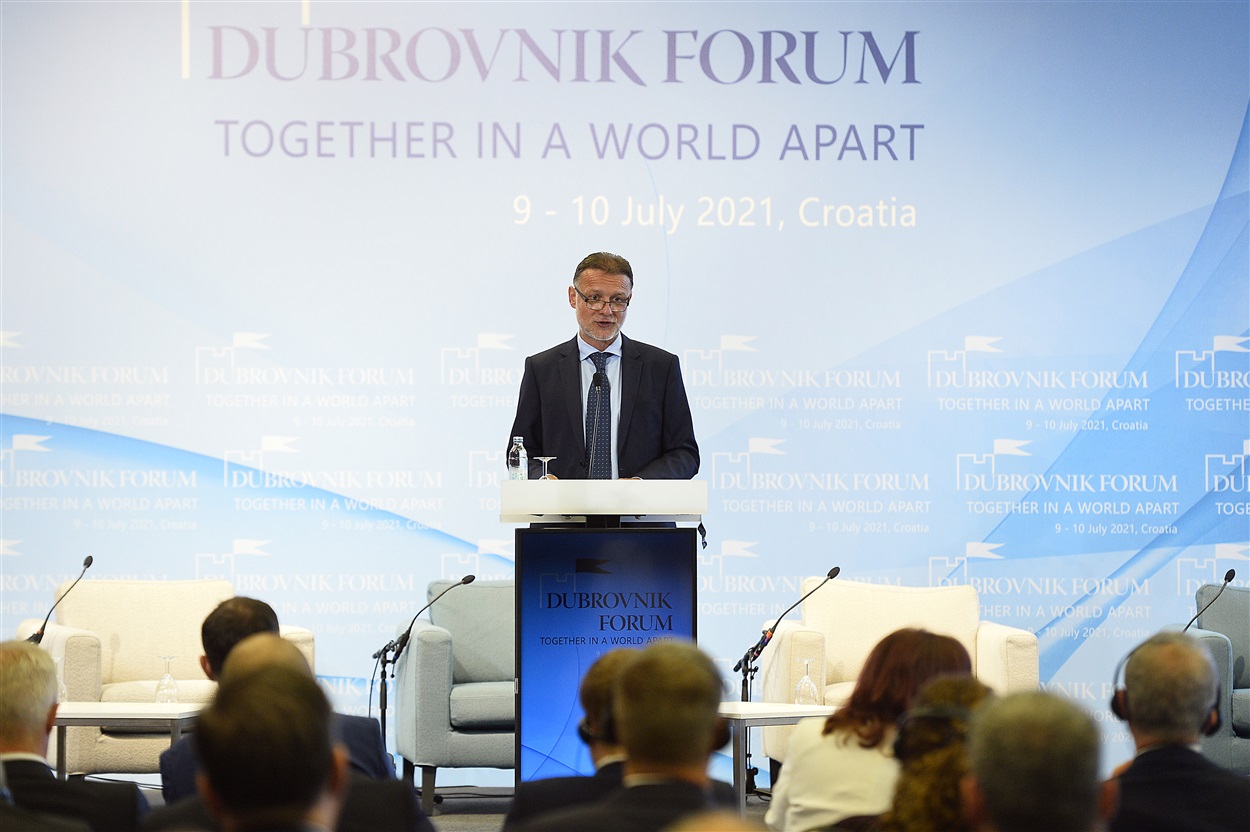
Zagreb - Croatian Parliament Speaker Gordan Jandroković said at Dubrovnik Forum on Saturday that the pandemic would "change lives permanently" and there would be no going back to the way of life before the pandemic, while cooperation, solidarity, and unity were needed more than ever.
This year's forum is determined by the outbreak and consequences of the COVID-19 pandemic, which will permanently change life as we know it, Jandroković said.
"Historically speaking, pandemics have always changed the world. That is why we have to be aware that the way of life before the pandemic will be different from the one we will step into after the pandemic," he added.
In his speech at the 14th edition of Dubrovnik Forum, Jandroković said that in 30 years of independence, Croatia has passed a demanding path from dictatorship to democracy, from a planned economy to a market economy, from war to peace, and achieved two main geostrategic goals - NATO and EU membership.
Today it is facing new types of challenges, such as demographic problems, migration, environmental protection, and climate change, which are among the greatest global threats.
"We can improve the quality of water in the rivers and seas, we need to reduce waste, create green spaces in our cities and increase the use of renewable energy. Companies and states should be encouraged to become leaders in new technologies," Jandroković said.
"The pandemic has convinced us that our power over nature is limited. However, we must preserve our planet for future generations," he added.
Coronavirus makes the future more uncertain
The Croatian parliament speaker stressed that the emergence of coronavirus had made our future more uncertain.
He said he wanted to increase inter-parliamentary cooperation but coronavirus was an obstacle.
"However, thanks to science today, we have a quick and effective response to this threat - vaccination. Therefore, we need to ensure access to the vaccine on a global scale," he said, calling for vaccination because "only then will we be able to live more safely, freely, and fully."
During the COVID crisis, states increasingly turned to themselves and their interests, while cooperation, solidarity, and unity are needed more than ever, Jandroković said.
In that context, he said that the Croatian government had donated over 300,000 doses of vaccines to Bosnia and Herzegovina, Montenegro, Kosovo, North Macedonia, Albania, and Kyrgyzstan.
Southeast Europe is strategically important to Croatia, which supports the European path of its neighbouring countries because "it is in our interest to preserve stability and peace," he said.
The situation in Bosnia and Herzegovina is especially important to Croatia due to the large number of Croats living there.
Preserving the equality of all three people and the necessity of reforms important for Bosnia and Herzegovina's Euro-Atlantic path is a direction that will ensure peace and stability, Jandroković said.